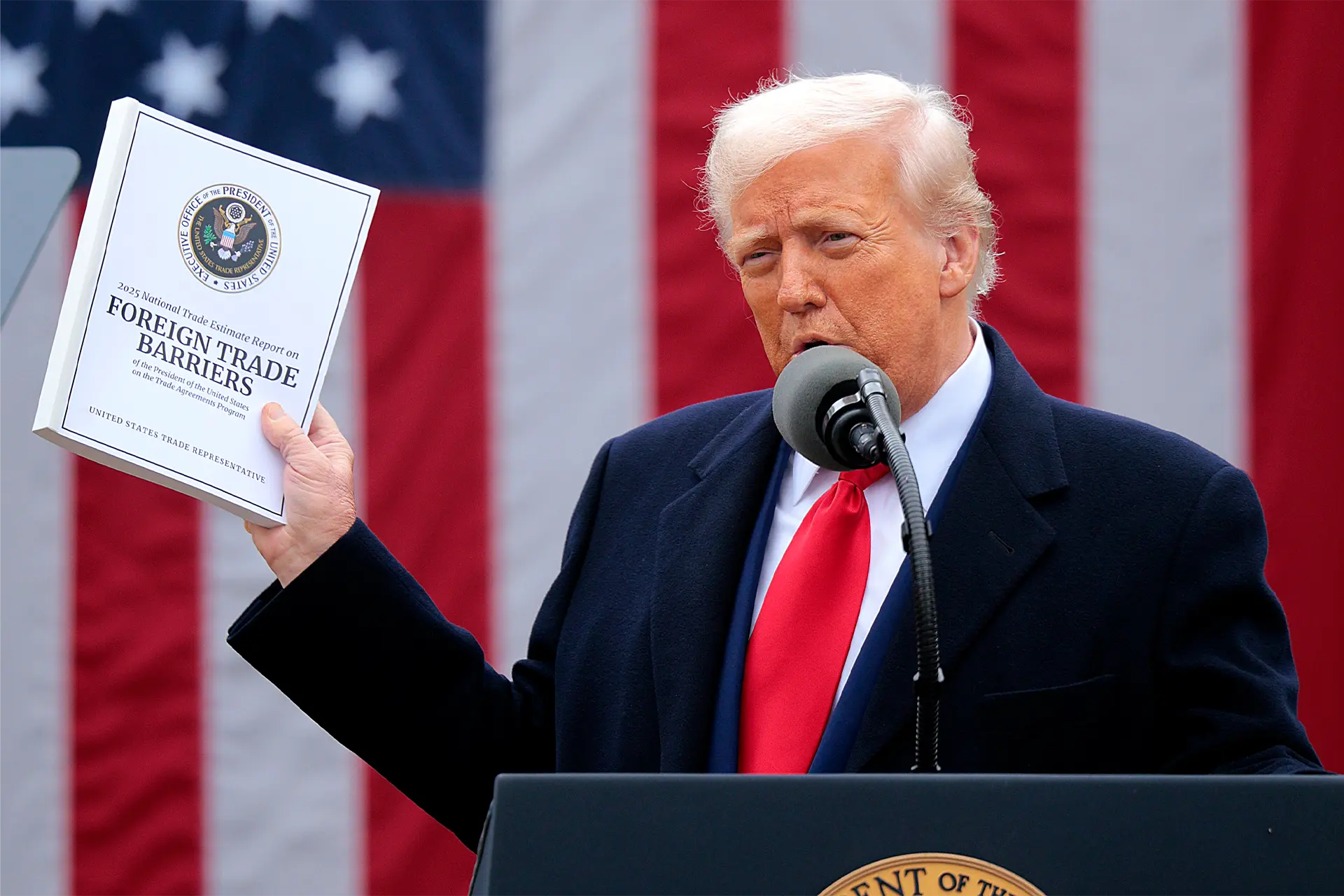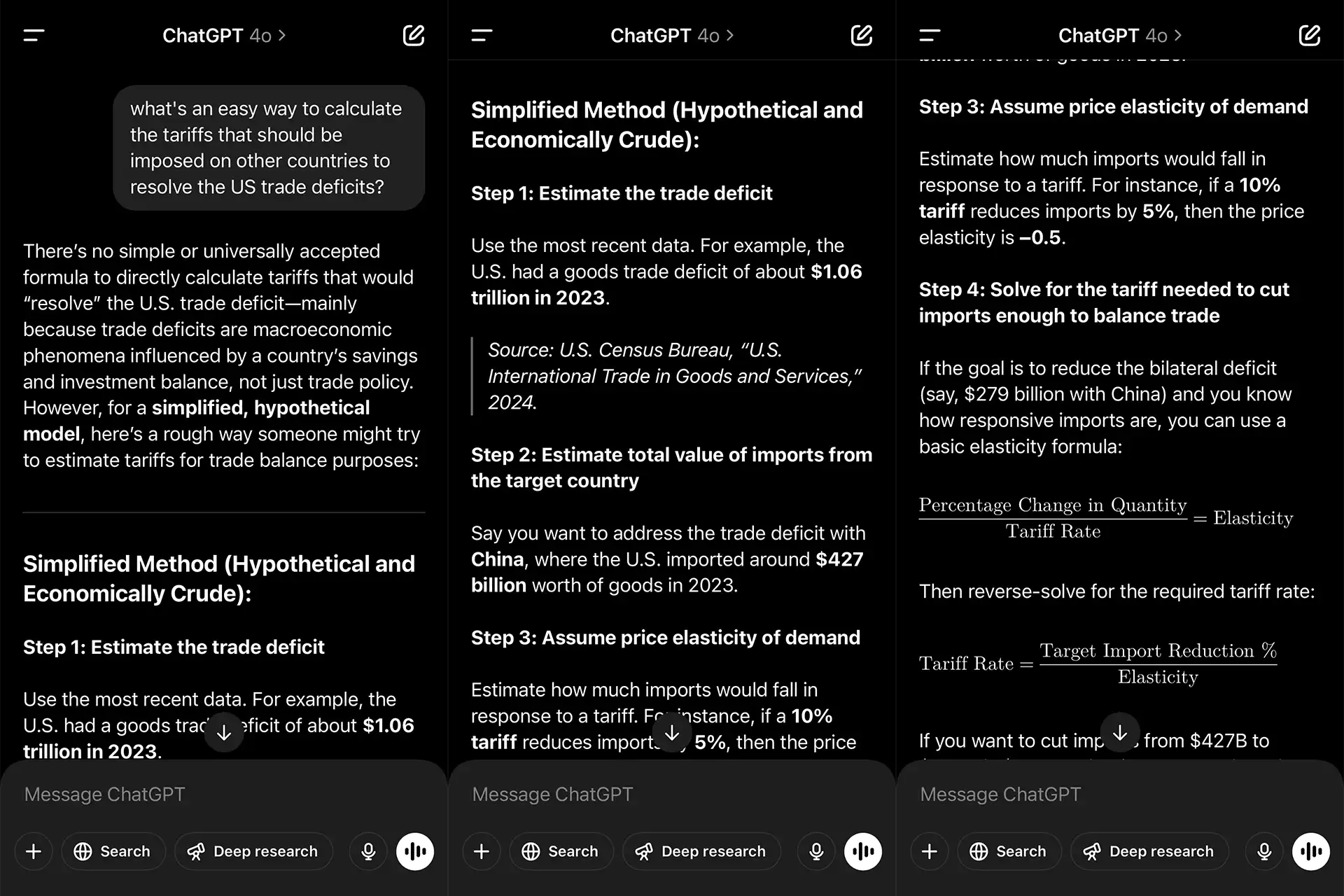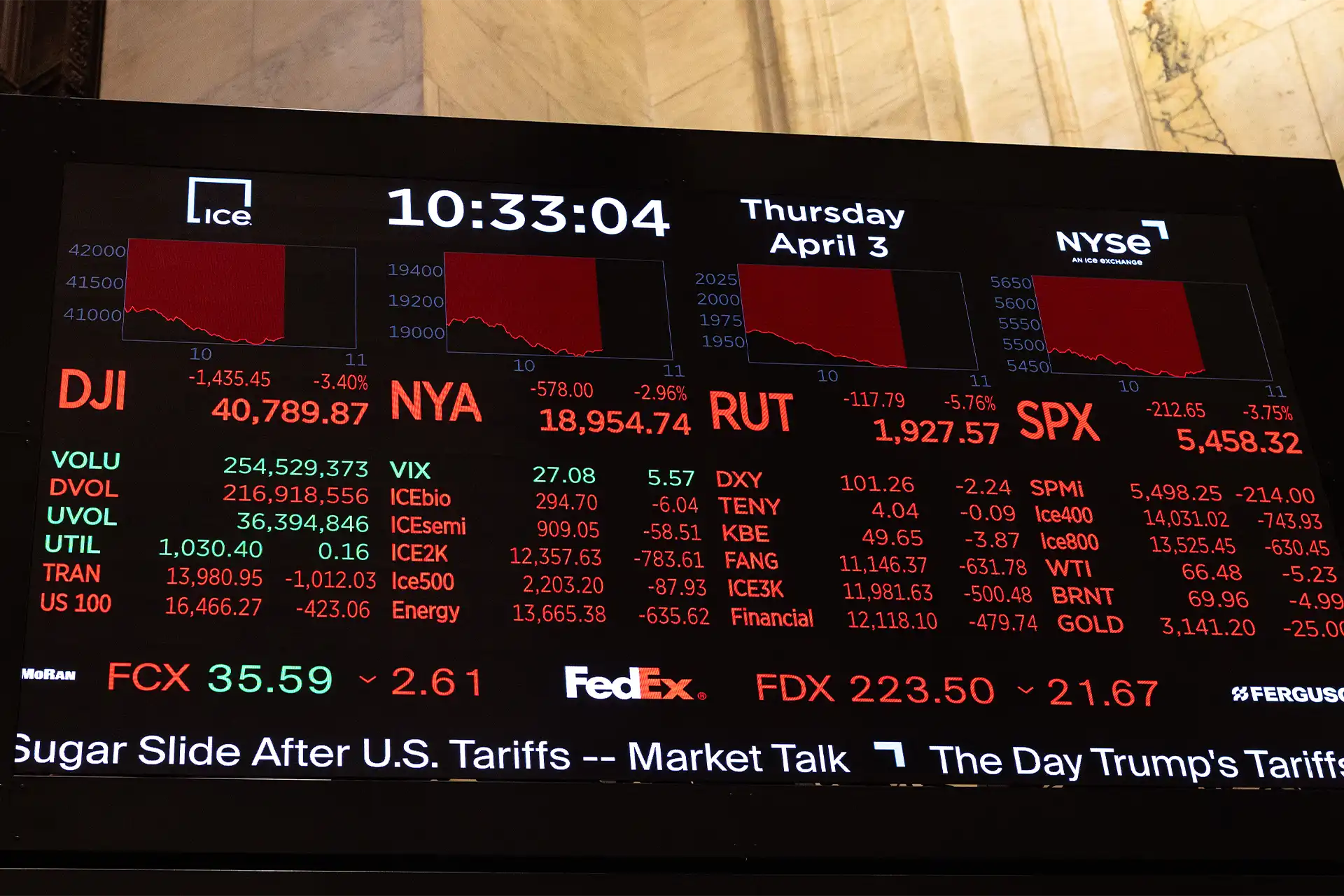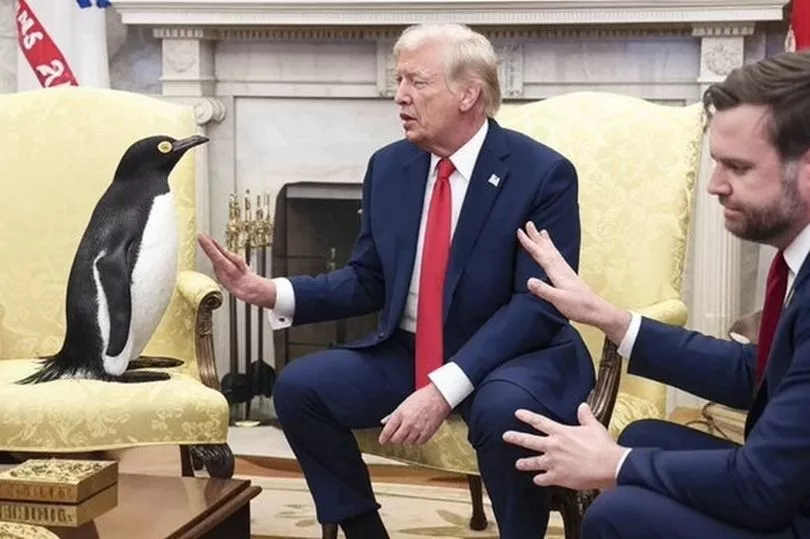
Politics & Society
Trump is no Caesar, but the republic is collapsing

There are big risks in replacing experts with AI to make decisions on global trade, and we may be about to find out what can go wrong
Published 10 April 2025
There’s an absurdity in this moment in global politics – or at least in the global politics that is forced to react to the whims of Donald Trump.
He has long been obsessed with tariffs as a tool for showing strength. He wants to be the President who is feared by the rest of the world, and convinced that other countries see the United States as a sucker, rather than as the centre of the global economy.

But how does one go about setting ‘fair’ tariffs for nearly every nation on Earth?
What we know now is that they used a relatively simple formula that has nothing to do with the tariffs that other countries charge, which are historically low, but rather with their trade deficits with the United States.
Their formula is the exact same one that ChatGPT produces when you ask “what’s an easy way to calculate the tariffs that should be imposed on other countries to resolve the trade deficits?”.
Could the global economy have been derailed by a ChatGPT prompt?
Are we in the first AI-generated economic collapse?
These tariffs follow in Trump’s trademark mercurial style. No one expects that they will last for the long term (he has already 'paused' tariffs higher than ten per cent on countries other than China), and that uncertainty is one of the primary reasons for the five-alarm fire happening across global markets.

Politics & Society
Trump is no Caesar, but the republic is collapsing
Businesses cannot make reasonable investments in a world in which their profit margins are being decided by fiat from Washington, and as such, trillions of dollars in investments are being wiped from stock markets.
What concerns me more than the tariffs themselves is how we got here.
These tariffs seem to be a reverse engineered solution to a problem that Trump created. He wanted to impose tariffs, and he needed people to figure out how to do that in a way that sounded plausible.
The United States has imposed 10 per cent tariffs on Australia, which has a trade surplus with the United States – the very condition that Trump is trying to generate.
Lesotho has been assessed a 50 per cent tariff after it has been the decades-long partner in a program that aims to replace aid with trade.

Trump and Elon Musk are trying to shut down the main mechanisms of US foreign aid, saying that countries should grow their wealth through trade with the United States.
Now, they’re making that impossible. It’s the kind of logical consistency we’ve come to expect.
What scares me is that Silicon Valley ideology seems to have permeated how the United States government makes its decisions. That asking ChatGPT for a formula to solve global trade is an acceptable response, and that thoughtlessly applying data to a spreadsheet will be a panacea.
This is evident in how seemingly random, tiny islands like the uninhabited Heard and McDonald Islands, or the British Indian Ocean Territory ended up on the list, despite having little to no trade with the US and falling under the laws of their own sovereign country anyway.
They simply exported a list from the US Census Bureau that included those territories as separate countries and applied the 10 per cent or more algorithm.

They even coded a shipment of Timberland shoes coming from the US state of New Hampshire (NH) as coming from the tiny Australian territory of Norfolk Island (NI), and then argued that Norfolk Island was being used as a tax haven and therefore deserved a 29 per cent tariff.
No one bothered checking the list, because these algorithms cannot make mistakes, apparently.
As Silicon Valley continues to work its way into the mechanisms of the US Government, it brings with it an idea that data at scale can solve all problems, that it equals something like intelligence.
The big tech community has decided that knowledge, experience, and relationships are no longer important, but that ‘efficiency’ – whatever that means – is the most important.
There’s a term in Silicon Valley called ‘vibe coding’, where developers skip reasoning and their own training and just use an LLM (Artificial Intelligence Large Language Model) to develop their code and then slot it in to their programming.

It’s quick and easy, and it’s usually just good enough. It’s helping companies grow quickly, and technology is developing faster than ever.
These tools have powerful capacity to help people skill up quickly. But now, we’re governing in the same way. Asking a question of ChatGPT and slotting in the answer.
We’re coasting by, exporting our capacity to these machines.
The problem comes when that runs into hard economic realities. Trump’s tariffs came about because he wanted to seem powerful.
Part of me understands the domestic political desire to enforce tariffs too. My own community back in South Carolina saw jobs disappear because of globalisation and free trade.

But we’re stuck in a world in which we all want manufacturing jobs in our hometowns and we want goods at way cheaper rates than those hometown factories can produce.
In a cost of living crisis, cost usually wins out.
But even if the goal was to bring back manufacturing to the US, the solution was never blanket tariffs, and certainly not mercurial ones.
We are now governed by prompts. Foreign policy by autocomplete. Economic strategy via spreadsheet filter. Tariffs on uninhabited islands.
If you're looking for the next global recession, don’t check the stock exchange. Check the chat history.